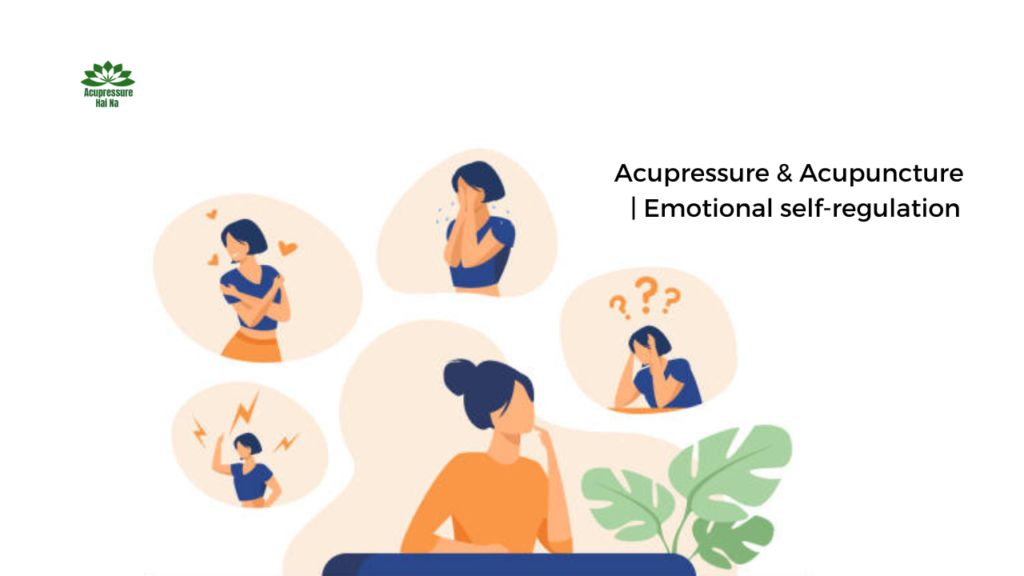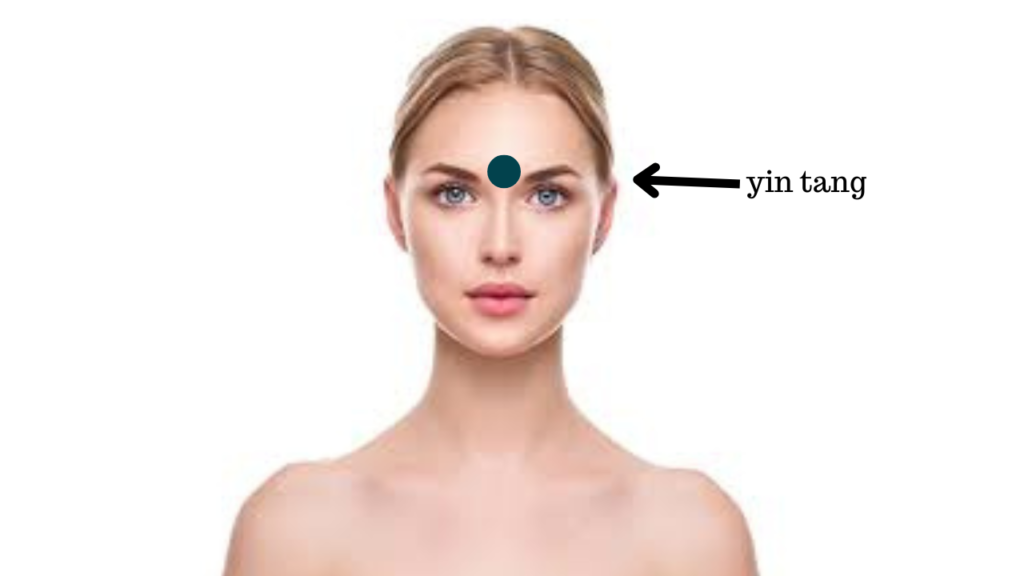How to control emotions | Emotional self-regulation. Emotions can be powerful and overwhelming, and managing them is a real challenge. From anxiety to depression, it’s common to feel like emotions are taking over your life. But what if there is a way to harness your emotions and control them?

Acupressure, A traditional Chinese medicine, and ayurvedic Acupressure has been shown to help individuals achieve emotional balance and overcome emotional diseases
Acupressure is based on the same principles as acupuncture, which involves the use of needles to stimulate pressure points throughout the body.
In acupressure, however, pressure is applied using fingers, Jimmy, or other tools. The practice is believed to balance the flow of chi (energy) throughout the body and promote healing. One way that acupressure can help control emotions is by focusing on specific pressure points related to emotional regulation. For example, the Heart 7 point, also known as the Shen.
Emotional control techniques. Heart 7 point

The main point is believed to calm the mind and reduce anxiety. This point can be found on the inner wrist crease towards the small finger.
Another pressure point commonly used in acupressure for emotional regulation is the third eye (yin tang) point, located in the center of the forehead. Stimulating this point is believed to reduce stress and promote relaxation, making it an excellent choice for those experiencing anxiety, depression, or anger.
How to control anxiety with acupressure

Acupressure is not only an effective therapy for controlling emotions, but it is also a safe and natural alternative to medication. Unlike prescription drugs, acupressure does not have any adverse side effects.
To get the most out of acupressure for emotional problems or any psycho-somatic disease, it’s important to work with an experienced practitioner ( Dr. Gaurav Anand is the best acupuncture/acupressure doctor ) who can help you identify the best pressure points for your specific emotional challenges. They can also help you teach how to perform acupressure on yourself, so you can continue to benefit from the practice of at-home emotional regulation strategies.
In conclusion, acupressure is a powerful treatment for managing emotions and achieving emotional balance. By stimulating specific pressure points, you can reduce anxiety, anger, fear, depression, and other negative emotions, and can heal all psychosomatic disease acupressure promoting relaxation and calmness. With its natural, safe, and effective approach, acupressure is an excellent choice for anyone looking to take control of their emotional well-being. Emotional control techniques control emotions
FAQs
Q1: What is acupressure?
A1: Acupressure is a traditional healing technique derived from traditional Chinese medicine. It involves applying pressure to specific points on the body to stimulate the body’s natural healing abilities.
Q2: Can acupressure help in controlling emotions?
A2: Yes, acupressure can be a helpful tool in managing and controlling emotions. By applying pressure to specific acupressure points, it can help release tension, promote relaxation, and restore emotional balance.
Q3: Which acupressure points are beneficial for controlling emotions?
A3: There are several acupressure points that are believed to be helpful for controlling emotions, including the Pericardium 6 (P6) point, also known as the “Inner Gate,” located on the inner forearm, and the Governing Vessel 24.5 (GV 24.5) point, also known as the “Third Eye Point,” located between the eyebrows.
Q4: How do I apply acupressure to these points?
A4: Apply firm but gentle pressure to the acupressure points using your fingertips or thumb. You can either press and hold the points for 1-2 minutes or use a circular motion while applying pressure. Repeat as needed.
Q5: Are there any precautions or contraindications for using acupressure?
A5: Acupressure is generally safe, but there are a few precautions to consider. Avoid applying pressure to open wounds, bruises, or areas of inflammation. If you are pregnant or have any underlying health conditions, it is advisable to consult with a qualified acupressure practitioner or healthcare professional before using acupressure.
Q6: Can acupressure replace professional help for emotional issues?
A6: Acupressure can be a useful complement to professional help for emotional issues, but it is not a substitute for professional treatment. If you are experiencing persistent or severe emotional difficulties, it is important to seek guidance from a qualified mental health professional.
Q7: How long does it take to see results with acupressure for controlling emotions?
A7: The effects of acupressure can vary from person to person. Some individuals may experience immediate relief, while others may require regular and consistent practice over time to notice significant changes in emotional well-being.
Q8: Can I perform acupressure on myself, or do I need assistance?
A8: Acupressure can be self-administered by applying pressure to the acupressure points on your own body. However, if you are unsure or would like assistance, you can seek guidance from an acupressure practitioner who can show you the correct techniques and provide personalized recommendations.
Q9: Are there any other techniques that can complement acupressure for emotional control?
A9: Yes, combining acupressure with other relaxation techniques such as deep breathing exercises, meditation, or mindfulness can enhance its effectiveness in controlling emotions.
Q10: Are there any scientific studies supporting the use of acupressure for emotional control?
A10: While there is anecdotal evidence and some preliminary studies suggesting the potential benefits of acupressure for emotional well-being, more research is needed to establish a conclusive scientific basis. It is always advisable to use acupressure as a complementary approach alongside evidence-based therapies.
Please note that the information provided here is for informational purposes only and should not replace professional medical advice. If you have specific concerns or questions, it is best to consult with a qualified acupressure practitioner or healthcare professional.
Read also this
